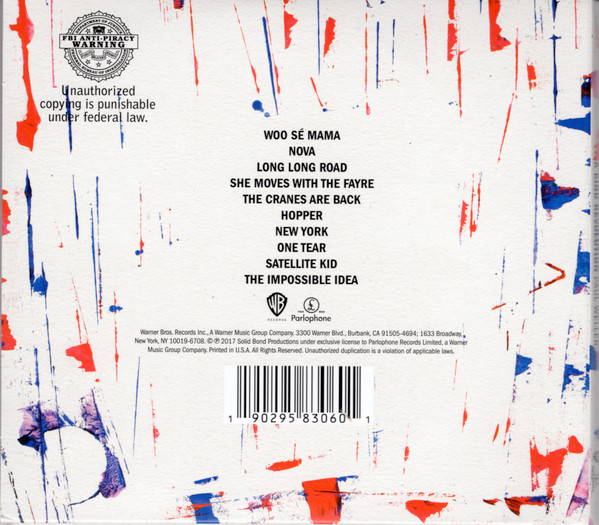Paul Weller: A Kind Revolution - 2017
After four diverse and somewhat experimental albums, Paul Weller went a little bit “back to basics” with this one, from 2017. There were quite a few tracks that were very redolent of his halcyon days of Stanley Road and Heavy Soul in the mid 1990s - his “modfather” days as the darling “elder statesman” of “BritPop”.
There was also a gentle, comfortable ambience to it, emphasising the fact that Paul Weller was nearly 60 when he composed this album. Along with this is a certain denseness and lyrical impenetrability that requires repeated listens.
It kicks off with a lively number - the strangely-named Woo Sé Mama has airs of the rockier numbers from Weller’s mid-90s output about it, plus hints of Betty Wright’s Shoorah Shoorah in the chorus. It is a pleasing, rumbustious opener - solid and gritty, with some nice trippy, jazzy keyboards at the end. It has riffy echoes of Peacock Suit in many places and is definitely one of Weller's most pleasingly rocking songs for quite a while.Up next, Nova is another powerful industrial, murky rocker, augmented by some punchy, brassy horns and some cutting guitar from Weller. His vocal is, at times, eerily late 60s in tone. The track has a brooding, haunting ambience to it. Long Long Road is a deliciously orchestrated, typical Weller slow number, with some convincing backing vocals and organ. Its atmosphere is sombrely evocative.
She Moves With The Fayre is a staccato, slightly funky number with a wistful, floaty vocal that sounds as if it should be on 2005’s As Is Now album. Like many tracks on this album, it takes time, but it gets into your bloodstream eventually.
The Cranes Are Back is one of those bucolic, peaceful numbers that Weller excelled in during the 1990s. It never gets out of second gear, but it doesn’t need to. There is a deep, warm bass line on it. Quite what it is about I am not sure. The equally lyrically perplexing Hopper ploughs the same, slow, reflective but potent furrow. It has an addictive rhythm and sort of gets into your system, particularly when the brass comes in.
New York is a swirling, psychedelic-style number with some choppy guitar underpinning it. It also has a hypnotic organ and bass passage that I love. Again, its rhythm gently takes hold of you. One Tear is a trippy, chill-out number that starts with a delicious bass line and is another slow-burning groove. The vocal duties are shared with a throaty-sending Boy George, would you believe. There is some seriously funky guitar at the end of this. It is a great track, not instant, but a grower.The dreamy, rhythmic Satellite Kid is one of those tracks for which each listen reveals more. It features some excellent pounding drums and searing guitar, ending in a sort of loose jam fashion. The Impossible Idea ends the album on a slightly laid-back, rustic-style pleasant number in that Wild Wood style. There are hints of jazz in places.
This was a good, beguiling but not a truly great album. As I said earlier, there are hidden depths to this offering that means several listens are necessary. Refreshingly for Weller, it has a great sound quality (which certainly Wake Up The Nation did not have). It is one that begs more listens but, however many you give it, it always has a little bit of a veneer of sleepiness about it. That said, there are time when I really enjoy it. It is a nine o'clock on a winter's Monday evening album. A Weller album always challenges, he always manages to keep his work fresh and intriguing, I have to love him for that.
Non-album track
The non-album track, Alpha, is a sonorous, pounding, electro-style instrumental, essential only for completists, like me, who duly bought it. It does feature some good, psychedelic guitar in places, though. It is completely incongruous to the overall ambience of the album, however.









